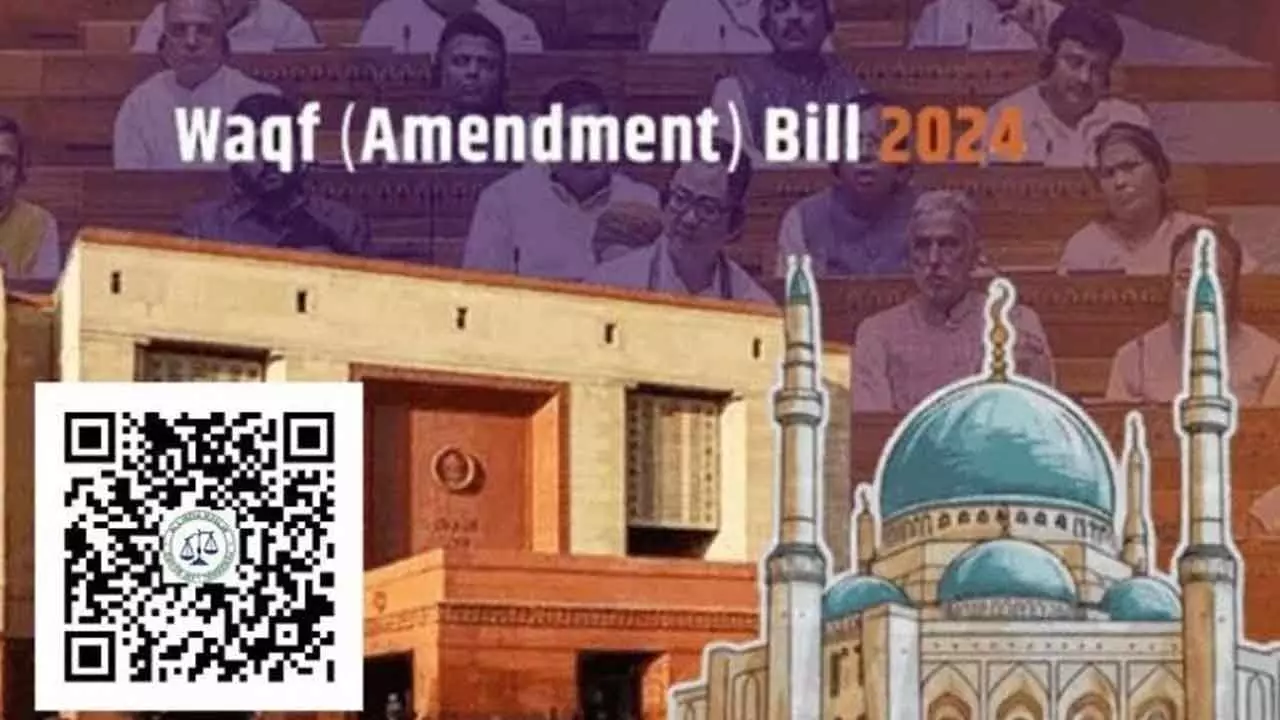Waqf law-III: Debate on Waqf Amendment Bill-2024 heats up in State

JPC on Waqf Amendment Bill likely to visit Hyderabad by the end of September
Hyderabad: The debate on the Waqf (Amendment) Bill -2024 is heating up in Telangana at a time when the Joint Parliamentary Committee on the Bill is likely to visit Hyderabad at the end of September.
It may be mentioned here that Telangana is reportedly the second state after Uttar Pradesh with the highest land properties belonging to the Waqf.
The All India Majlis-e-Ittehadul Muslimeen (AIMIM) chief and Hyderabad MP Asaduddin Owaisi appealed to people to send their representations opposing the bill. The London University-educated Barrister-at-Law turned politician and AIMIM chief termed the proposed amendment 'oppressive' and 'unconstitutional'. He raised several questions at a recent meeting of religious leaders pointing out the adverse effects of the proposed amendments highlighting a section-by-section dissection of the proposed amendments by the Centre to the existing Waqf Act-1995.
He appealed to impress the members of the Muslim community and all people to oppose the Waqf (Amendment) Bill-2024 justifying the continuation of the sanctity of the existing Waqf Act-1995. The Hyderabad MP lashed out at those supporting the amendments, including objecting to 'Section 40 of the Act', 'the finality of the verdicts of the Waqf Tribunal' vis a vis other tribunals, 'Waqf by user', 'Oral Gift deed to Waqf', 'application of the law of limitation' and several other important aspects in the existing law and the proposed amendments to it.
On the other hand, the BJP state leaders and BJLP decided to go on a mass awareness campaign on the Waqf (Amendment) Bill, 2024. Mahbubnagar MP and BJP national vice-president DK Aruna attended two meetings of the 'Waqf Badhitulu' (Sufferers of the Waqf) criticised saying some have unleashed a vicious campaign against the proposed amendments misleading people that the amendments to the existing act were meant to grab the lands of the Muslims.
She said that the Waqf has not come to the help of the poor in any way. Besides, there are reports of misuse of the Waqf properties. It was against this backdrop that the amendments were proposed, and the same has been referred to the JPC. She assured the people at the meetings held in Zaheerabad and Boduppal to take their representation to the notice of the JPC appointed on the proposed amendment bill.
DK Aruna demanded CM A Revanth Reddy to submit a representation to the JPC on the problems faced by people relating to Waqf properties.
Farmers and people from different sections at the two meetings in Zaheerabad and Boduppal have raised pertinent questions on the current Waqf Act of 1995. They said the Act in its current form and implementation is transgressing all the redlines set out by the contours of the Constitution. Firstly, it is interfering and depriving them of the 'Right to Life and Livelihood', "Right to Practice Profession", "Right to reside in any place in India", 'Right to access the schemes extended by the State and the Centre like Rythu Bhandu, Rythu Bharosa, Prime Minister Kisan Samman and others." The prime culprit for all this was not based on any due process of law, but, an 'at-will' and 'no-holds bar' power bestowed on the Waqf Boards under Section 40 of the Act. The declaration of a property as Waqf property is based on a strange legal position of 'Reason to Belive' by the Waqf board more than enough to declare a property belonging to the Waqf. Unlike in general cases of law relating to the ownership, the board can usurp any property with its 'reason to believe' status in law. Those affected have to prove their ownership.
Meanwhile, legal eagles are diving deep into even the jurisprudential foundations of the Waqf Act and Section 40, which is coming into conflict and crossing the red lines drawn in the contours of the Constitution in the law-making process.









